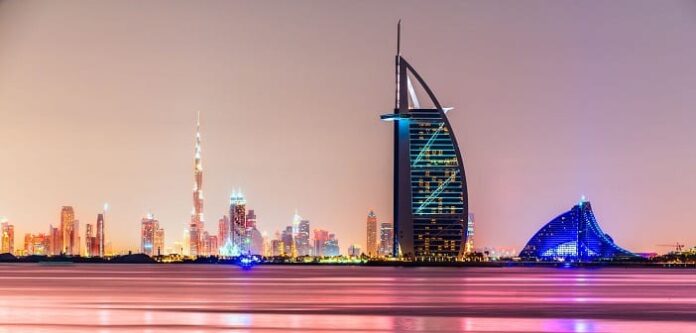Philips will work with the Dubai Roads and Transport Authority to focus on smart lighting initiatives
The Dubai Roads and Transport Authority (RTA) has signed a memorandum of understanding (MoU) with Philips Lighting Export to implement smart lighting initiatives in the emirate.
“This MoU will provide the latest lighting solutions, including smart lighting technology, control and monitoring of Dubai streets, footpaths and cycling lanes, as well as a wide network of roads and parks,” Maitha bin Adai, CEO of RTA’s Traffic and Roads Agency, said. “The research teams from both parties will commission feasibility studies taking into consideration investment and operational aspects that meet road safety standards and the stipulations of Smart Dubai initiative to ensure the highest possible efficiency required for implementing innovative solutions,” bin Adai added.
Bin Adai also said that the two parties will seek to materialize scientific and practical experiences as well as applications on the ground through mutual technical visits, workshops and seminars.
“The MoU will also enhance the efficiency in the fields of lighting technology and power saving in the emirate of Dubai as well as relevant projects, Paulo Serveny, CEO of Philips Lighting Export, said. “Thus, it ensures that investment and operational projects will be in line with the traffic safety standards and Smart Dubai standards; which echoes our strategy aimed at opening new horizons of joint development.”
Smart gates reduce passenger waiting time at Dubai Aiport
In related news, Dubai Airports, operator of Dubai International Airport, has reported that passenger wait times at the airport have dropped by approximately 10% during the first quarter of 2017 thanks to the installation of a new motion sensor system and the incorporation of the Emirates ID card service with its 120 smart gates.
The smart gates, combined with the recently implemented Emirates ID card service, have pushed down transaction times to an average of 10 to 15 seconds per passenger.
Alongside the smart gates, the motion sensor system enables the airport to track queues in real time using approximately 530 sensors installed throughout terminals 1 and 3. The sensors track the movement of passengers, collecting and computing valuable data such as wait times and queue lengths. The data is then conveyed via an application to more than 5,000 operational staff working at the airport.
Dubai Airports said that the installation of the technology in Terminal 2 is scheduled to take place during 2017.

